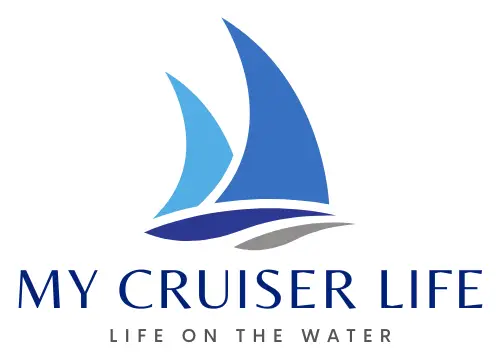Buying a pontoon boat should be exciting, not a journey toward buyer’s remorse that’ll haunt you every weekend on the water. Yet thousands of boaters each year get burned by manufacturers who cut corners on construction, skimp on materials, and treat customer service like an optional accessory. The harsh reality? Some pontoon boat brands to avoid will leave you dealing with leaky tubes, failed welds, and warranty runarounds that make getting help feel impossible. Here you’ll discover the specific red flags, construction shortcuts, and dealer network problems that separate quality manufacturers from the ones you should steer clear of—plus expert insights that could save you thousands.

Table of Contents
- What Makes a Bad Pontoon Boat Brand?
- Common Complaints from Owners
- Red Flags When Researching a Brand
- Expert Advice on Avoiding Bad Buys
- Smart Shopping: Your Final Float Check
- FAQs – Pontoon Boat Brands to Avoid
What Makes a Bad Pontoon Boat Brand?
When you’re shopping for a pontoon boat, it’s like buying a house—you want to know what red flags to watch for before you get stuck with a lemon. The difference between a quality pontoon and a floating headache often comes down to three key areas that separate the wheat from the chaff.
Poor Construction Materials and Methods
The heart of any pontoon boat lies in its aluminum construction, and this is where corner-cutting manufacturers show their true colors. The most commonly used gauge for pontoon boats is 0.080 inches, also known as 5052-H32, but here’s where things get dicey—some budget brands use even thinner aluminum that’s more like wrapping a beer can around air than building a proper boat.
Think of aluminum gauge like the difference between cardboard and plywood when building a shed. Thicker means less noise and more dent/impact resistance, and you don’t want your pontoons looking like they’ve been through a demolition derby after one season on the water. Quality manufacturers use proper welding techniques and adequate internal baffling, while the sketchy ones skimp on both. You’ll spot construction flaws in how the tubes connect to the deck—poor welding looks rough and uneven, almost like someone did it in their garage with a Harbor Freight welder.
The flooring tells another story entirely. The floor bears the entire load of the furniture. It is constantly submitted to stress and strain from the water pressure and flow. Therefore, expect no less than 3/4″ (19mm) pressure-treated plywood. Cheap manufacturers will use thinner flooring that’ll start sagging faster than a soggy pizza box, leaving you with a bouncy deck that feels unsafe underfoot.
Related: Catamaran vs Pontoon — Facts Buyers Should Know
Warranty and Customer Service Nightmares
Here’s where the rubber meets the road—or should I say, where the pontoon meets the water. A company’s warranty isn’t just about what’s written on paper; it’s about whether they’ll stand behind it when things go sideways. From day one, the top leaked in a number of locations. The dealer kept saying they would get hold of the factory rep. (the stall tactic)
Bad pontoon brands have a nasty habit of playing hot potato with warranty claims. They’ll pass you between dealers and manufacturers like you’re carrying the plague, leaving you high and dry when that bimini top starts leaking like a sieve or those tube welds crack. Quality manufacturers offer transferable warranties that add resale value, while the questionable ones make their warranty so restrictive you’d need a team of lawyers to make a claim stick.
The real telltale sign? When a manufacturer’s customer service feels like you’re bothering them by asking for help with their product. Good companies treat warranty work as an opportunity to make things right, not as an expensive nuisance they’d rather ignore.
Engine Compatibility and Resale Value Issues
This is where things get interesting—and expensive. Poor-quality pontoon brands often don’t engineer their motor mounts properly, which means you’re limited in what engines you can bolt on there. It’s like buying a car that can only use one specific brand of tires that cost twice as much as normal ones.
Quality pontoon manufacturers design their boats to handle a wide range of engine brands and sizes, giving you options when it’s time to repower or upgrade. The cheap brands? They’ll lock you into their preferred engine partnerships, often with motors that aren’t exactly known for their reliability or easy maintenance.
Resale value becomes a real kick in the wallet with inferior brands. While a well-built pontoon from a reputable manufacturer might hold 60-70% of its value after five years, a boat from a questionable brand could drop like a rock. Poor construction quality, limited dealer networks, and sketchy warranty support all combine to make these boats about as desirable as a screen door on a submarine when it comes time to sell.
Common Complaints from Owners
Welding Woes That Keep Surfacing
Flip through any boating forum or scan the Better Business Bureau complaints, and you’ll see faulty welding problems pop up like weeds after rain. One BBB complaint detailed a 2021 pontoon with holes due to bad welds in all three pontoons, described by an engineer as either a manufacturing defect or design flaw. When those welds fail, you’re looking at water intrusion that can ruin your day on the water.
Seating That’s More Headache Than Comfort
Poor seating quality consistently ranks among the top gripes from pontoon owners across Trustpilot and boating forums. One Better Business Bureau complaint highlighted seats with mild steel fasteners rusting so severely that the seat back broke off, dumping a passenger on the floor. New boat owners report seats arriving so dirty that they require hours of scrubbing just to look decent.
Underpowered Engine Nightmares
BoatUS members regularly share horror stories about engines that turn over but fail to start after just 30 minutes of use, leaving families stranded like floating question marks. The complaint often stems from manufacturers pairing insufficient horsepower with heavier boats, creating frustrating performance mismatches.
The Service Runaround
The most maddening complaint involves the customer service shuffle—where owners get bounced between dealers and manufacturers like ping-pong balls. BBB records show cases where customers email service reps multiple times with no response, leaving boat owners navigating a maze instead of enjoying their investment.
Related: Pontoon Lifting Strakes: What They Are and Why They Matter
Red Flags When Researching a Brand
Warranty Red Flags
When you’re diving into warranty terms, it’s like reading the fine print on a used car lot—except this time you’re shopping for something that floats. Avoid warranties that are vague or limited in coverage, because a sketchy warranty is often the first sign of a manufacturer who doesn’t stand behind their work.
Quality manufacturers offer comprehensive coverage that’s straightforward and transferable. If you’re squinting at warranty language that’s vaguer than a politician’s campaign promise, keep shopping. Look for specifics: structural coverage length, component details, and whether they cover both parts and labor. The real kicker is when companies make warranty claims feel like navigating a maze blindfolded.
Vague Build Specifications
When you ask about aluminum gauge thickness or construction details and get marketing fluff instead of hard numbers, that’s a red flag bigger than the one at a NASCAR race. Legitimate manufacturers proudly specify 0.080-inch aluminum thickness, internal baffle counts, and welding processes. The shady ones dance around with phrases like “marine-grade materials” without actual specifications.
Dealer Network Problems
A weak dealer network is like having a sports car but no gas stations. Check how many authorized dealers exist in your region and read service department reviews. If there’s only one dealer within 200 miles with a poor customer service reputation, you’re setting yourself up for frustration when warranty work needs to be done.
Expert Advice on Avoiding Bad Buys
When you’re shopping for a pontoon boat, the smartest move is tapping into wisdom from folks who’ve been knee-deep in marine hardware for decades. Marine technicians with 25+ years in the industry and certified since 2006 have seen every mistake in the book—and they’re not shy about sharing what separates a smart purchase from a wallet-draining nightmare.
Listen to Your Marine Surveyor
- Get ultrasonic testing done. You can hire a marine surveyor to inspect the tubes with an ultrasonic thickness tester, which will tell you how bad the pitting is. This isn’t just fancy tech talk—it’s the difference between buying a solid boat and floating Swiss cheese.
- Hire credentialed professionals. Professional marine surveyors are recognized by the IRS, courts, banks, and insurance companies as boat and yacht appraisers within their area of expertise, and their job is to tell you the truth about a boat, whether it’s pleasant or painful to hear.
Marine Technician Red Flags
- Don’t trust gut feelings over data. As a marine surveyor, I’m often surprised by how many boats have expired safety items. Experienced inspectors have seen too many buyers fall in love with looks while ignoring fundamental safety issues.
- Verify what’s included. Despite brokers having a responsibility to disclose all information about a used boat, often they themselves don’t have all the information, so it’s important to get your pre-purchase survey done.
Smart Shopping: Your Final Float Check
You’ve survived the pontoon shopping gauntlet—now it’s time to seal the deal without getting soaked. Smart buyers treat this like assembling a puzzle: every piece needs to fit. Your dealer should feel like someone you’d trust with your boat keys, not some guy who disappears faster than beer on a hot day.
Here’s your cheat sheet: Research manufacturers like you’re stalking an ex on social media. Demand construction specs instead of marketing fluff. Read that warranty—shocking concept, right? And always take a test drive, because every pontoon handles differently.
You’re not just buying a boat; you’re investing in floating family memories.
FAQs – Pontoon Boat Brands to Avoid
Who makes the best quality pontoon boat?
Premium manufacturers like Bennington, Harris FloteBote, and Manitou consistently rank highest for build quality and customer satisfaction. These brands use thicker aluminum construction (0.080-inch gauge minimum), superior welding techniques, and comprehensive warranties. They maintain extensive dealer networks and prioritize customer service. While more expensive upfront, these manufacturers deliver better long-term value through durability, performance, and stronger resale values.
What is the most reliable brand of boat?
Reliability varies significantly by boat type and manufacturer. For pontoons, Bennington and Harris FloteBote lead in dependability ratings. In general boating, brands like Boston Whaler, Grady-White, and Sea Ray maintain strong reputations for reliability. The key factors include construction quality, engine compatibility, dealer support networks, and warranty coverage. Research specific model years and read owner reviews before purchasing any boat brand.
What are the weaknesses of a pontoon boat?
Pontoon boats struggle in rough water conditions due to their flat-bottom design, making them unsuitable for choppy seas or heavy weather. They’re slower than V-hull boats and less fuel-efficient at higher speeds. Storage can be limited compared to cabin cruisers. Pontoons also require more maintenance on tube welds and are vulnerable to shallow water damage. Their wide beam can limit marina slip options and trailering flexibility.
What is the top of the line pontoon?
Luxury pontoon manufacturers like Bennington, Harris Crown, and Manitou offer premium models exceeding $200,000. Top-tier features include triple-tube construction, high-horsepower engine compatibility, premium upholstery, advanced electronics packages, and luxury amenities like wet bars and high-end sound systems. These boats deliver superior performance, comfort, and craftsmanship but come with significantly higher price tags than entry-level pontoons. Quality construction justifies the investment for serious boaters.
